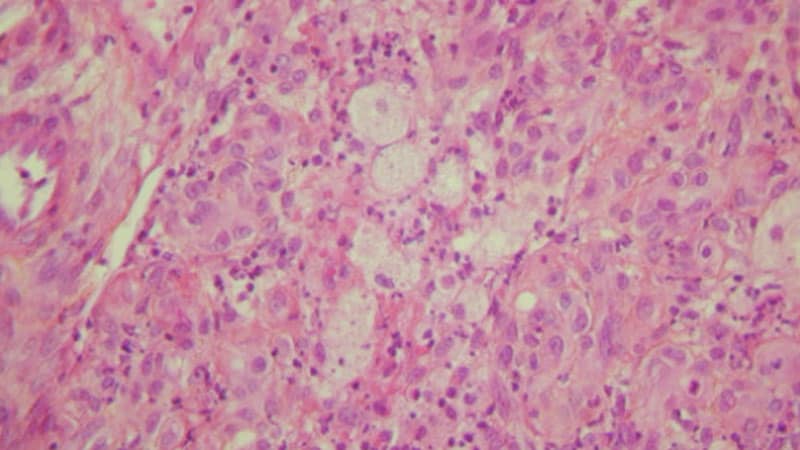Bartonella Bacteria Linked to Increased Risk of Schizophrenia and Psychotic Disorders
Core Concepts
Patients diagnosed with schizophrenia or other psychotic disorders are more likely to have Bartonella bacteria DNA in their blood compared to healthy individuals, suggesting a potential link between Bartonella infection and the development of psychotic symptoms.
Abstract
This study investigates the potential association between Bartonella spp. infection and the development of psychotic disorders, such as schizophrenia. The researchers analyzed blood samples from 116 individuals, including 29 healthy controls, 16 individuals with prodromal symptoms, 7 children/adolescents with psychosis, 44 adults with psychosis, and 20 close relatives of those with psychosis.
The key findings are:
A significantly higher proportion of adults with psychosis had Bartonella spp. DNA in their bloodstream compared to healthy adult controls (43% vs. 14%, p=0.021).
DNA sequencing identified various Bartonella species, including B. henselae, B. vinsonii subsp. berkhoffii, B. quintana, B. alsatica, and B. rochalimae.
There was no significant difference in Bartonella-specific antibodies between the psychosis and control groups, suggesting that exposure to Bartonella is common in the general population.
The study does not establish whether the presence of Bartonella bacteremia is a cause, cofactor, or contributor to the progression of psychotic disorders.
The researchers suggest that if future studies support an association between Bartonella infection and psychosis, Bartonella-targeted antimicrobial therapy trials could be initiated to determine if treatment improves or resolves psychotic symptoms. However, more research is needed to confirm the potential causal relationship between Bartonella infection and the development of psychotic disorders.
Cat Scratch Fever Pathogen Linked to Schizophrenia
Stats
43% of adults with psychosis had Bartonella spp. DNA in their bloodstream, compared to 14% of healthy adult controls.
65% of patients with schizophrenia had Bartonella spp. DNA in a previous study, compared to 8% of healthy controls.
Quotes
"Bartonella may be one of several pathogens that can induce neuroinflammation and neuropsychiatric symptoms."
"In contrast to the historical literature, particularly as related to cat scratch fever, which has been considered an immunologically self-limiting illness, it is now clinically important to recognize that bartonelloses can induce a chronic, stealth bacteremia in healthy individuals and in patients with neurological and neuropsychiatric symptoms."
Key Insights Distilled From
by Megan Brooks at www.medscape.com 06-18-2024
https://www.medscape.com/viewarticle/cat-scratch-fever-pathogen-linked-increased-psychosis-risk-2024a1000bad
Deeper Inquiries
What other potential mechanisms or pathways could link Bartonella infection to the development of psychotic disorders?
Bartonella infection could potentially lead to the development of psychotic disorders through various mechanisms. One possible pathway is through neuroinflammation caused by the bacteria infiltrating the central nervous system. This neuroinflammation could disrupt normal brain function and contribute to the manifestation of psychotic symptoms. Additionally, Bartonella spp have been shown to invade endothelial cells, which could lead to vascular dysfunction and compromise blood-brain barrier integrity, allowing for the entry of inflammatory molecules into the brain. Furthermore, the bacteria may produce neurotoxins or affect neurotransmitter systems, altering neuronal signaling and potentially leading to psychiatric symptoms.
How might the presence of Bartonella infection interact with other known risk factors for schizophrenia and psychosis, such as genetics, environmental factors, and immune system dysregulation?
The presence of Bartonella infection could interact with other known risk factors for schizophrenia and psychosis in several ways. Firstly, genetics may play a role in determining an individual's susceptibility to both Bartonella infection and psychiatric disorders. Certain genetic variations could make individuals more prone to developing psychosis in response to the neuroinflammatory effects of the bacteria. Environmental factors, such as stress or trauma, could also interact with Bartonella infection to exacerbate psychiatric symptoms. Immune system dysregulation, which is a common feature in both Bartonella infection and psychotic disorders, could further amplify the inflammatory response and contribute to the development of psychiatric symptoms.
Could Bartonella infection play a role in the development of other neurological or psychiatric conditions beyond just schizophrenia and psychosis?
Yes, Bartonella infection could potentially play a role in the development of other neurological or psychiatric conditions beyond schizophrenia and psychosis. The ability of Bartonella spp to invade various tissues and organs, including the brain, suggests that these bacteria could contribute to a range of neuropsychiatric symptoms. For example, Bartonella has been associated with conditions such as encephalitis, neuroretinitis, and chronic fatigue syndrome, indicating its potential to affect neurological and psychiatric function. Further research is needed to explore the full extent of Bartonella's impact on the nervous system and its potential role in a broader spectrum of neurological and psychiatric disorders.
0
More on Medical Research
Experts Criticize Slow Progress and Lack of Effective Treatments in $1.6 Billion Long COVID Research Program
Lung Cancer Screening Associated with Earlier Diagnosis and Improved Survival in Retrospective Study of Veteran Patients
Promising New Biologics and Algorithmic Challenges in COPD Care Highlighted at ATS 2024 Conference
